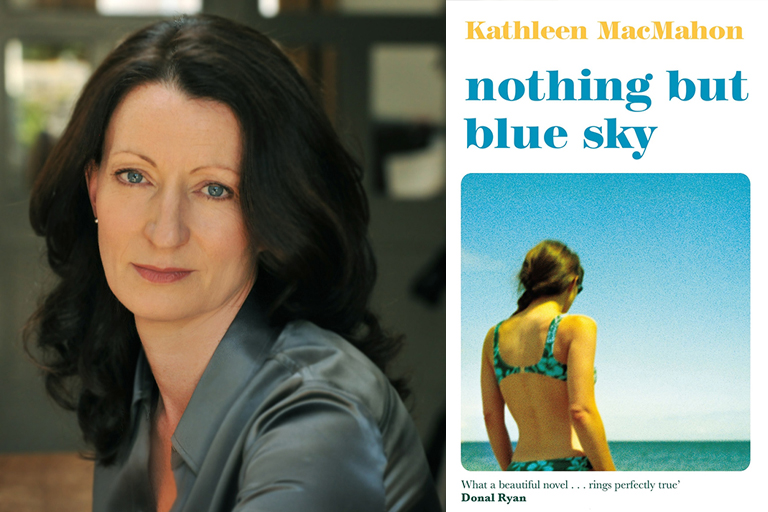The 2020 Women’s Prize for Fiction winner will be announced this Wednesday, and ahead of the big reveal we asked six well-known faces to review each book on this year’s shortlist, including actor Hayley Atwell, TV and radio presenter Vick Hope, broadcaster Bettany Hughes, news presenter and journalist Joanna Gosling, Sky News Presenter Sarah Jane-Mee and activist Nimko Ali OBE.
Hayley Atwell on Girl, Woman, Other by Bernardine Evaristo
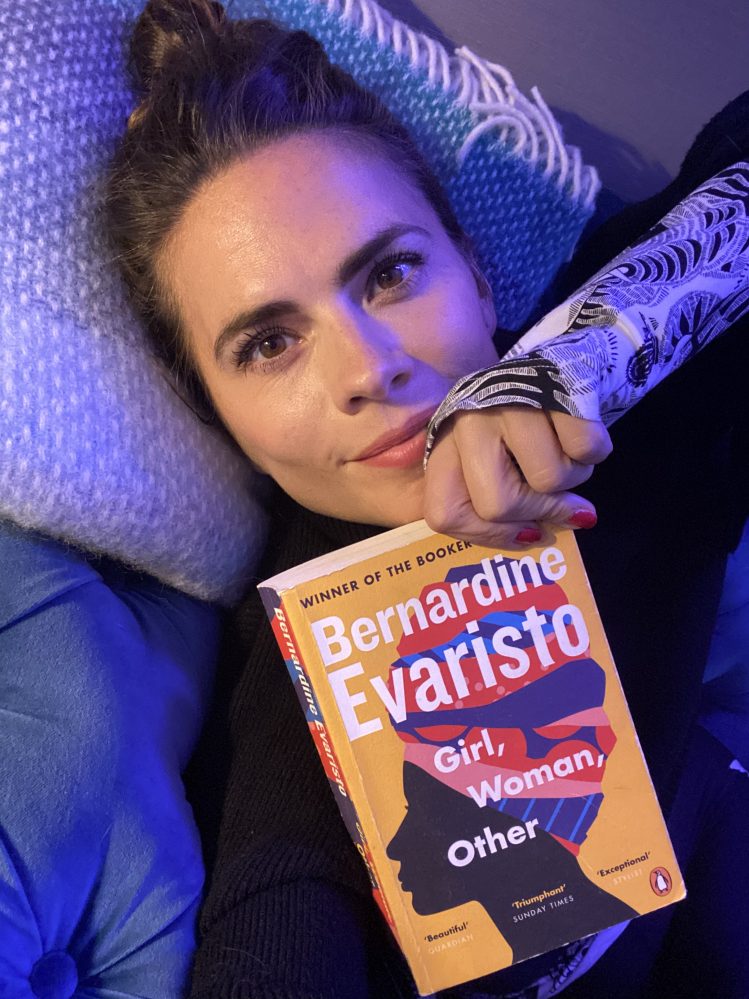
The novel begins with British writer and director Amma preparing for the opening of her highly anticipated new play at London’s Royal National Theatre. After decades of working on the fringe with shows like ‘FGM: The Musical’, her social status is about to change. Not all her friends support her: ‘admit it, Ams, you’ve dropped your principles for ambition and you’re now establishment with a capital E.’ Can her work find a credible place in the cultural consciousness? Can her unique voice tap into something collective? More challengingly, does she have a responsibility to represent anyone other than herself?
The theatrical event bookends the novel as a main plot device and from here the chapters spin out into a fast-paced, vibrant collection of individual stories. Twelve sections centre around twelve predominantly British womxn of colour. The weighty themes of sexuality, gender fluidity, friendship, immigration, self-expression, and identity are explored with a breezy tone that buzzes with confidence and levity.
Although the stories are seemingly fragmented in their separate chapters, the characters weave in and out of each others’ lives. The multiple perspectives and contradictory views highlight the complexities of British identity but also allow space for comedy. Ninety-three-year-old Hattie is close to her great-grandchild Morgan who was born ‘Megan’ and now identifies as non-binary. Hattie will leave her estate to Morgan but when they discuss gender fluidity, ‘Hattie asked her outright if she’d been to see a doctor because you sound mental, dear?’ There are many instances in the book where a character ‘others’ or reduces another. They inhabit different socio-economic worlds and embody various degrees of cultural privileges and, as budding journalist Yazz quotes Roxanne Gay, ‘privilege is relative and contextual…we have to find a new discourse for discussing inequality.’
Each section could have extended into a novel itself as the characters are so detailed and distinct. The real star is Evaristo herself. After decades of being a critically acclaimed author and academic, she now has a bigger international presence. Like Amma, her own unique voice is tapping into a collective conversation. How can someone integrate the facets of their character that remain unseen, invalidated, muted, and controlled by a structure they were born in and did not consent to? Reading this as the Black Lives Matter Movement gains vital momentum, I’m galvanized by the power of great story-telling such as this to challenge the reader to expand the view of one’s own life experience and encourage a dismantling and rearranging of it, celebrating the world more as it really is: vast, dynamic and diverse. This is Britain, then and now.
Vick Hope on Weather by Jenny Offill
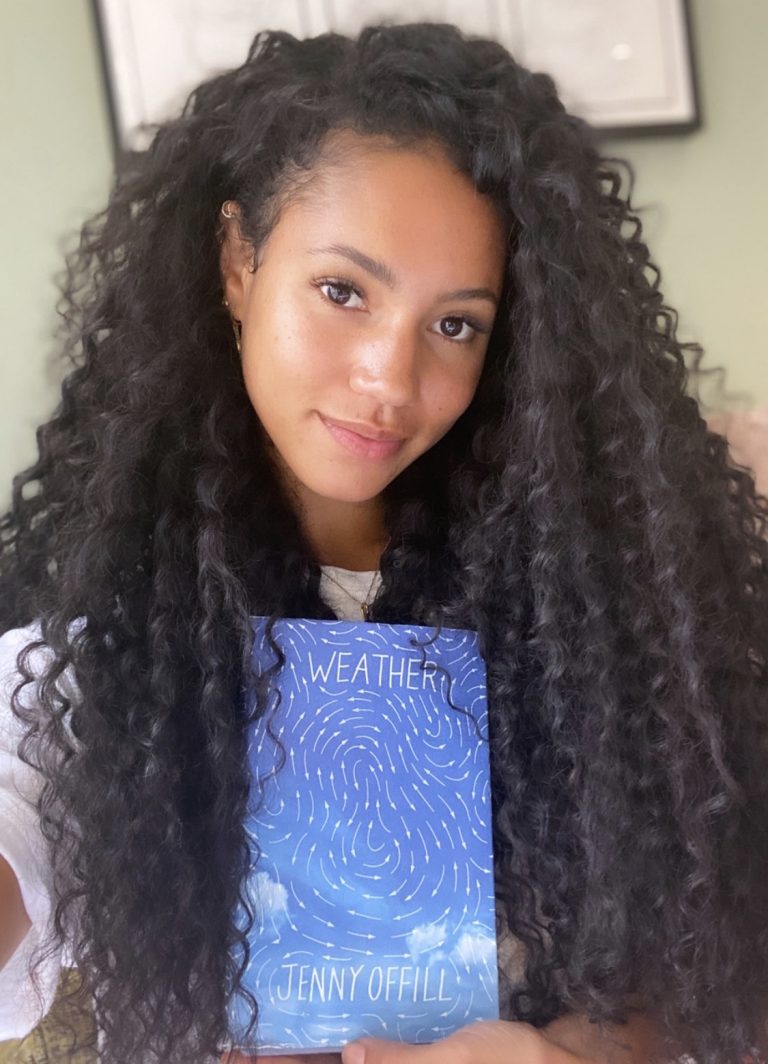
The world has been a particularly overwhelming place this year. Of course, Jenny Offill did not know what 2020 had in store for us when she wrote Weather, but there could not be a more perfect time to reflect on the emotional and political weather of our present, as she does so deftly in this novel.
Weather is philosophical without philosophising, as protagonist Lizzie explores the tiniest, most quotidian, mundane happenings of our daily lives, set against the backdrop of our tumultuous and finite natural world, questioning “what it means to keep tending your own garden once you’ve seen the flames beyond its walls”.
I found reading this a devastatingly existential activity. Not only did Offill force me to acknowledge anxieties around climate crisis, the political and social landscape, a pandemic-ridden planet and the pervading sense of powerlessness and being lost (basically everything I’m afraid of resonated in every page!). In Lizzie’s musings, I recognised the turning tides of my feelings, the sun rising and setting on relationships and life stages, the tumultuous storms of grief and loss that I have weathered, and the loves that have frozen and thawed my heart. Each passage is short but weighty; and easily devaourable. Weather is beautiful.
This is such smart literature. You’ll turn down so many of the pages articulating little gems to take away with you forever. Yes, it is painful to ask yourself, as Lizzie does: “If (you) can’t save others, then what, or who, might save (you)?” But although I felt the pain of this truth about the limits of what we can do, it was counteracted by the profound sense of perspective that this novel gave me, at a time when I needed it most.
Bettany Hughes on Hamnet by Maggie O’Farrell
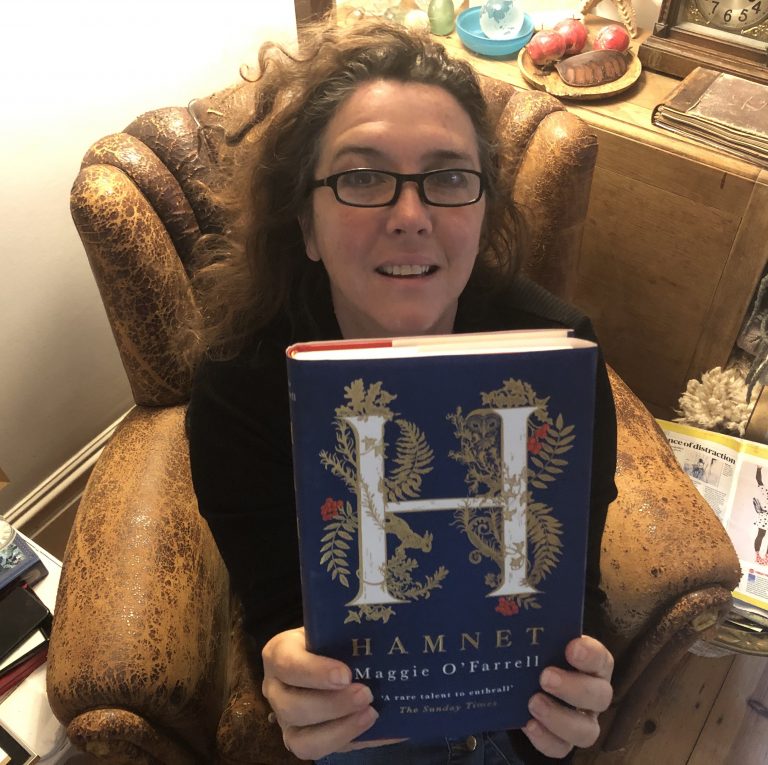
Imagination is time-travel: It allows us to be in many times at once. Nothing is more true of Maggie O’ Farrell’s Hamnet. On the face of it this is a story of late 16th century England – and in many, finely-wrought ways, it is utterly and specifically about now. Dreaming the loss of Shakespeare’s son Hamnet (inter-changeable with the name Hamlet for Elizabethans), who died of an unrecorded cause age 11, the luscious, zesty, possibly perfect prose could be describing Covid-struck Warwickshire. As Hamnet’s twin sister Judith is in decline, the mindfulness of panic is brilliantly observed. Shakespeare’s wife Agnes – the woman we call Anne Hathaway – fights fear, and fear of fear itself, to save her child. Her mission has an absolute acuity of purpose. There is too, the quiet and comprehensible selfishness of common crisis, Shakespeare’s daughter hopes there is a plague so her father will come home from London; his son is worried that the discovery of a horror has prevented him from chopping logs, distracted as he was by the fact his sister seems to be dying.
The writing is saturated with understanding, and describes woodlands, births, writing, tokens of love that feel so real, this is a book you yearn to read to return to reality. An inverted life and times of Shakespeare – told through the lives and times of those around him – is also a place where the veil between natural and supernatural worlds is thin: Where there is a kind of ecstasy found by those who understand the earth (Agnes and her brother Bartholomew), and a bigoted superstition of these enlightened earth-lovers from the Elizabethan equivalent of net-curtain-twitchers. There are too pre-echoes of key Shakespearian themes, cross-dressing, mistaken identity, traders from the east, tragedy.
Some have railed against O’Farrell’s presentation of Shakespeare’s father, John, as an abuser. But although John’s ‘coiled fury’ might make the historian in me quail a little – it lands the need to describe domestic abuse as a constant for so many across so much time. And, clearly having done her research on the page and in the field, hard history is delivered elegantly here. Shakespeare did live and love and lose through his own pandemic. When plague closed the theatres in London, Shakespeare turned a hand to other art forms to make ends meet – the narrative poem Venus and Adonis was such a venture. Erotic and titillating, it sold like hot cakes – and was so ardently thumbed that very few copies of the original edition survive. Creativity proves itself to be an instinctive response to crisis.
Absence of evidence is not evidence of absence. In the afterword we hear that the genesis of this book came when O’Farrell wondered why Shakesepare endured plague but never described it.
O’Farrell’s writing is packed with marvel and menace. Agnes keenly knows the world because she collects impressions as ‘a wool-gatherer gathers hoards of wool’ – one can’t but help feel this is a phrase of autobiography. Hamnet is a rule-book in clear-sightedness, and an historical escape into now.
Joanna Gosling on A Thousand Ships by Natalie Haynes
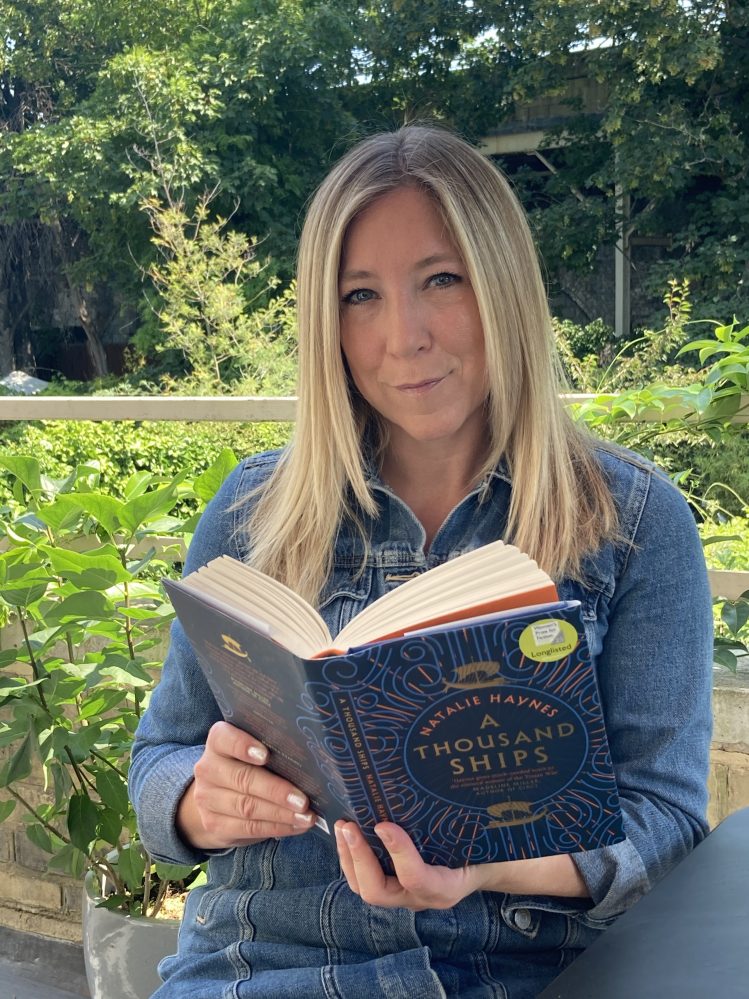
Natalie Haynes retelling of the battle of Troy and what came next, is not a story of one woman whose name is forever linked to the launching of a thousand ships. Instead, it’s a story of many women affected by the events she triggered. Not a rewriting of history from the perspective of the losers, as much as from the perspective of those who were central to the lives of the male heroes, but who remained largely hidden until now. The women marginalised by storytelling that defines heroism as the courage to go into battle and the strength to win on the battlefield.
A number of authors have successfully breathed life into some of these women. Where other works have focused on an individual, the brilliance of A Thousand Ships is that it gives us the full panorama – a modern epic. Perhaps if Homer had been a woman.
As Polyxena, the youngest daughter of King Priam and Queen Hecuba of Troy understands – “courage was not something special…it was something commonplace, required of everyone.”
“When a war was ended, the men lost their lives. But the women lost everything else.” This is the story of their resilience, their desires and their identity.
As with any reading of Greek myths, there are a lot of characters to get to grips with and Natalie Haynes does a masterly job of pulling narrative threads together while weaving in so much fresh detail.
The men and the women are heroic, flawed and complex, motivated by self and selflessness. As Haynes says in her afterword – “I hope readers might feel that heroism is something that can reside in all of us…It doesn’t belong to men any more than the tragic consequences of war belong to women. Survivors, victims, perpetrators: these roles are not always separate. People can be wounded and wounding at the same time.”
This is a beautifully written modern classic.
Sarah Jane Mee on The Mirror and the Light by Hilary Mantel
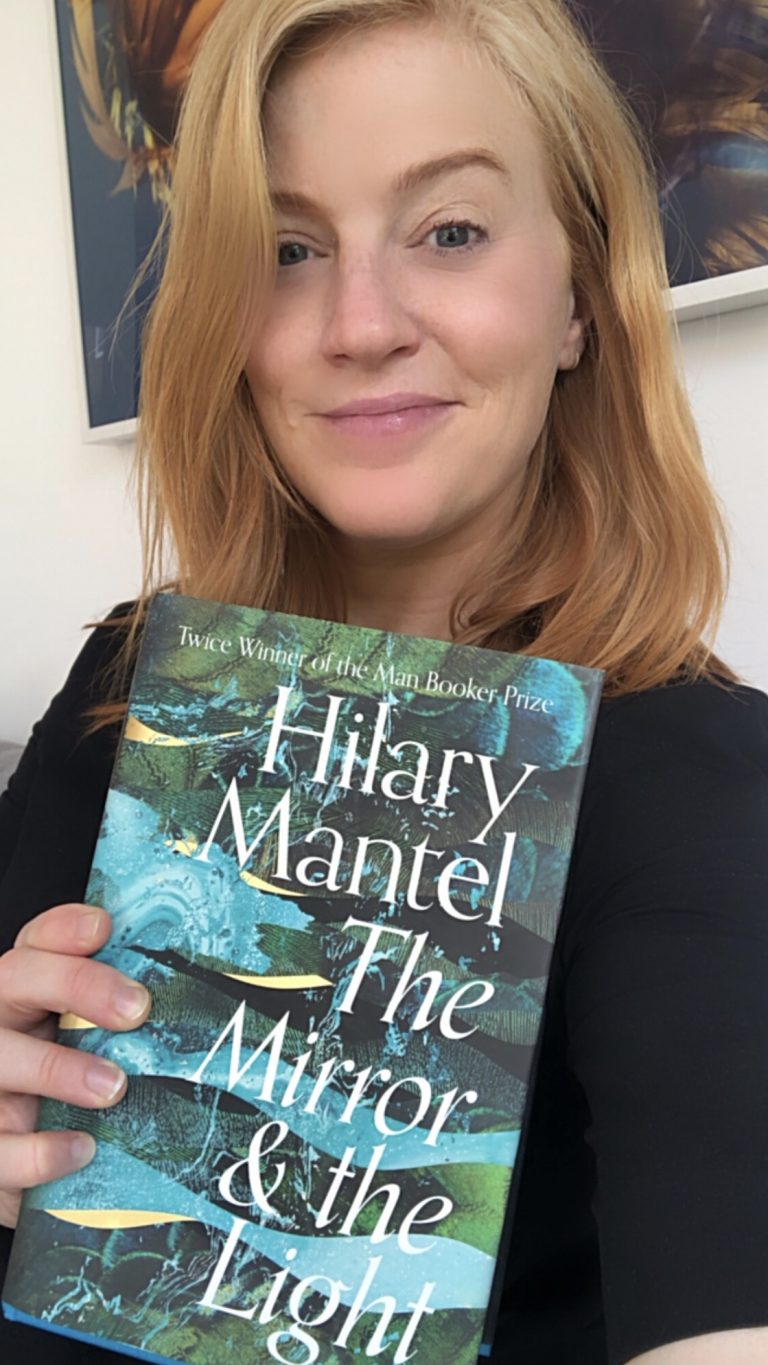
It’s been eight years since Bring Up The Bodies – so the anticipation for Hilary Mantel’s final instalment of her Thomas Cromwell trilogy was huge. The book delivers in terms of scale in every sense. At over 900 pages, it is epic in size and content as it covers the biggest time frame of the three novels – a four-year period of Henry VIII’s right hand man Cromwell’s life from the execution of Anne Boleyn until his own, with big historical moments in between.
The level of detail is incredible: Mantel has spent 15 years immersed in the world of the Tudor court and it shows in every sentence.
A book on such a grand scale demands all of your attention. You can read it without having read the previous two novels but it’s not an easy read, such is it’s huge cast of characters with numerous nicknames (there is a handy ‘who’s who’ at the front), intricacies and twists and turns.
However if you have the time, as I did with the book coming out as lockdown and maternity leave came in – this novel is a fully subversive experience bringing a much maligned, brutish, flat and dull character from the history books alive as a man who came from nothing to something. A clever, witty anti-hero who became the ultimate political power player, until of course he wasn’t…
As a historical novel, this is accessible without falling back on the Hollywood treatment many Tudor tales are given.
It has plenty to say about the politics of power, the role of women, England’s relationship with Europe and the beginnings of a new era for England. But ultimately, it is a deeply personal tale of a man who was a blacksmith’s son and who grew to be the 2nd most powerful man in England.
Sound heavy? Well there is plenty of dark humour running through this novel. There is a wickedly funny episode where Cromwell quizzes Jane Seymour about her wedding night. The new queen expresses surprise at some of the strange things she was asked to do and it is left to Cromwell to ask if they would at least lead to producing an heir…
What surprised me most about the novel was how the final few pages could hold such suspense and drama because we all know how this story must end – in the Tower.
Nimko Ali on Dominicana by Angie Cruz
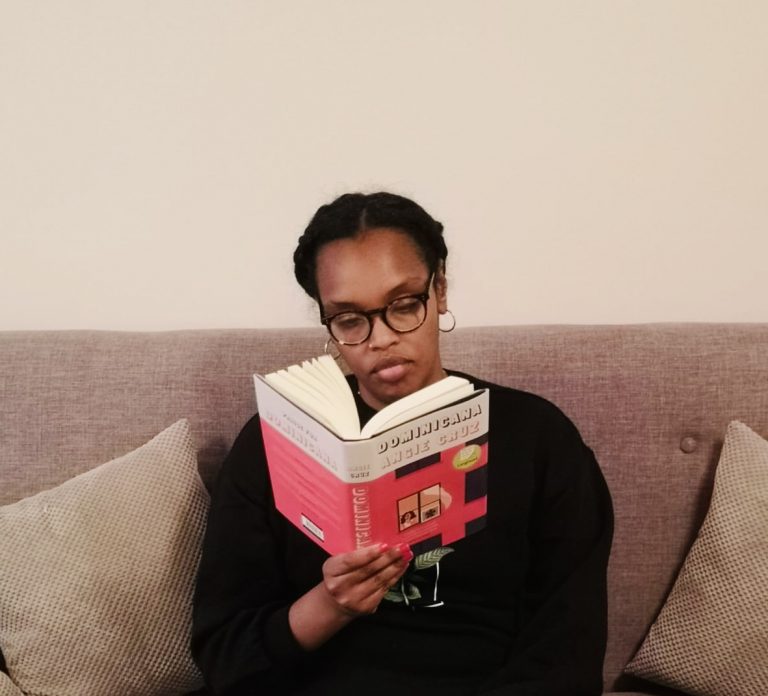
Dominicana, is a beautiful and brutally honest story of the sacrifices first generation immigrant women make for dreams that are not their own. Ana’s story is one I know too well as a British Somali immigrant.
The horrors and oppression of where they are, are never mentally unpacked, and always seen as something that will pay off with a better life later on, when they go back to the land of their birth.
I could not put this book down and I found myself hugging it because I just wanted to give Ana’s the love she longed for. Beyond the horror of child marriage, domestic abuse, colourism and racism of 1960s America that surrounds Ana, she still finds her voice and the echos of the the feminism which is the basis of this book.
I loved this book and its protagonist who some might call weak, but who actually is the embodiment of the women who raised the loudest women and girls today, because they harnessed their power silently and were more powerful than we will ever know.
We hope you enjoyed our celebrity book reviews, you can buy the shortlist from bookshop.org here>




